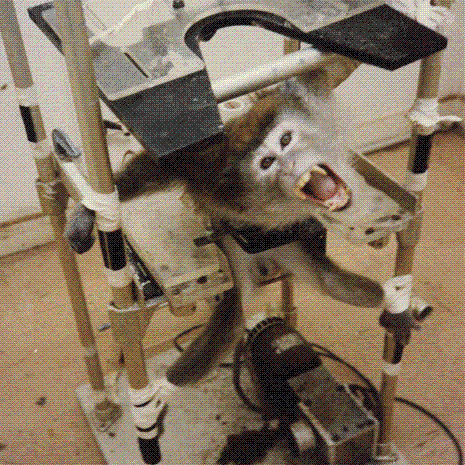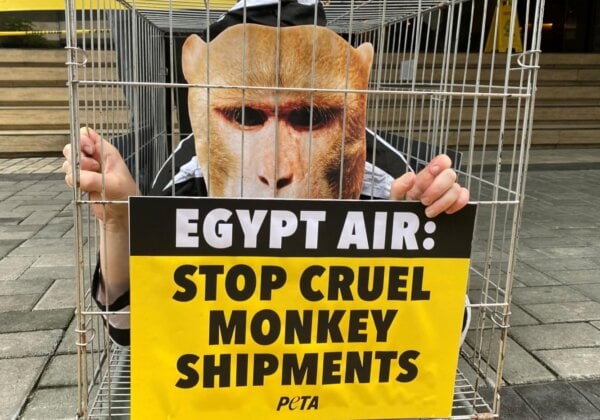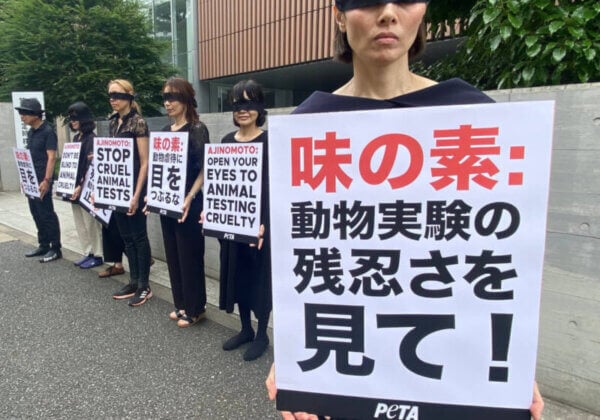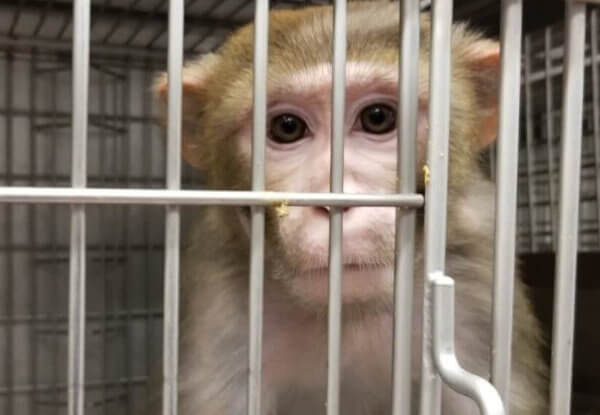30 Years and Going Strong!
 It has been 30 years since the historic Silver Spring monkeys case thrust the animal rights movement into mainstream consciousness in 1981. This first undercover investigation led to many other firsts—the first search-and-seizure warrant to be served on a U.S. laboratory, the first confiscation from a laboratory of abused animals, and the first cruelty-to-animals conviction of an experimenter.
It has been 30 years since the historic Silver Spring monkeys case thrust the animal rights movement into mainstream consciousness in 1981. This first undercover investigation led to many other firsts—the first search-and-seizure warrant to be served on a U.S. laboratory, the first confiscation from a laboratory of abused animals, and the first cruelty-to-animals conviction of an experimenter.
Those 17 macaque monkeys carried much of the weight of the animal rights movement on their backs. When PETA U.S. found the Silver Spring monkeys at the Institute for Behavioral Research in Silver Spring, Maryland, many of them were being used in a crude experiment in which their spinal nerves were severed, making it difficult or impossible for them to move one of their arms. The experimenter, Edward Taub, starved them, used surgical pliers to pinch their skin, and gave them electric shocks to try to force them to use their disabled limbs to get food. They had lost most of the fur on their tails to malnutrition.
The trauma of the cruel, invasive experiments and intense confinement to rusty, broken, and mold- and feces-encrusted cages was so severe that many of the monkeys had ripped off their own flesh and were left to suffer from open, festering wounds. Many had also lost their fingers to the jagged, broken, and rusty wires that protruded into the tiny, uncomfortable space where they had to sit and lie.
PETA U.S. pursued the Silver Spring monkeys case for more than a decade—all the way to the Supreme Court. Although the animal rights organization prevailed in getting some of the monkeys into a group indoor/outdoor space away from public view at the San Diego Zoo, some of them—including Augustus, for whom the PETA U.S. Augustus donor club is named—were turned over to another laboratory, anesthetized, experimented on, and killed.
Because the Silver Spring monkeys case forced the cruelty of animal experimentation into the spotlight, it paved the way for many victories for animals. In 1993, General Motors became the first company to stop using animals in automobile crash tests, and other companies soon followed until those horrendous experiments were eradicated. Avon, Revlon, and Estée Lauder became the first mainstream corporations to end animal testing, and since then, more than 950 household product, cosmetics, and personal-care product companies have followed suit.
In the past year, after another investigation, animal testing hellhole Professional Laboratory and Research Services, Inc., shut its doors and surrendered its animals. Four of the company’s workers were subsequently indicted on felony cruelty-to-animals charges (another first for animals in laboratories).
The Silver Spring monkeys (and some of the people who helped rescue them) are all at peace now, but their legacy will continue to lead to more groundbreaking changes for animals for many years to come.
Posted by Jason Baker









